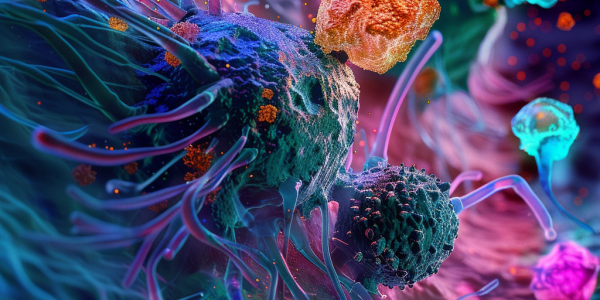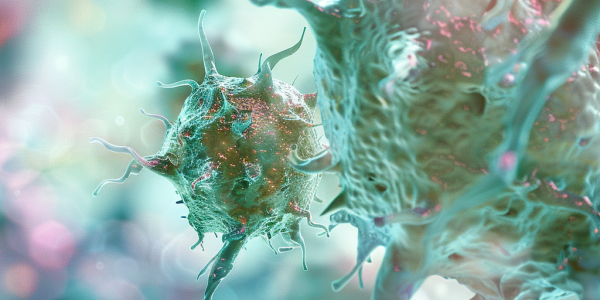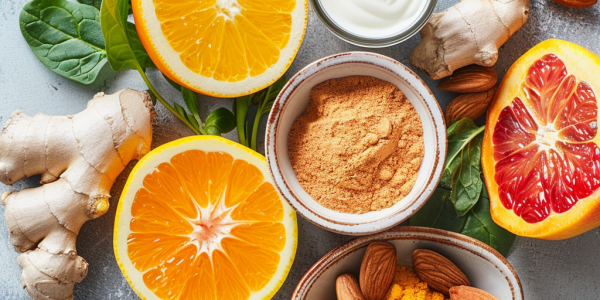Understanding Immune Defense During Cold and Flu Season
As cold and flu season approaches, understanding how our immune system works is essential for maintaining health. Dr. Michaela Gack from the Cleveland Clinic emphasizes the importance of vaccinations and healthy lifestyle choices to bolster immunity against viral infections. Stay informed about preventive measures and community health resources to protect yourself and your loved ones this season.
Top Foods to Boost Your Immune System During Cold and Flu Season
As cold and flu season approaches, discover the best foods to eat when you’re sick to boost recovery. From oatmeal and chicken soup to bananas and herbal teas, learn how these nutrient-rich options can support your immune system and ease discomfort. Find out which foods to avoid for a quicker recovery.
Groundbreaking Study Identifies Gene Variant Impacting Immune Health of First Nations People
A groundbreaking study by the Monash Biomedicine Discovery Institute reveals a new gene variant affecting immune responses in First Nations people, who face heightened risks of severe respiratory viral diseases. This research, published in Cell, highlights the significance of natural killer cells in combating infections and emphasizes the need for targeted health interventions and equitable healthcare strategies for these communities.
Study Reveals Role of P-Stalk Ribosomes in Cancer Immune Evasion
A groundbreaking study published in Cell reveals the critical role of P-stalk ribosomes (PSRs) in cancer’s immune evasion mechanisms, highlighting their impact on tumor detection by CD8+ T cells. This research paves the way for novel cancer immunotherapy strategies by targeting PSRs to enhance immune responses against tumors.
Essential Tips for Boosting Your Immune System This Winter
As winter approaches, maintaining a strong immune system is crucial to combat seasonal illnesses. Mountain Peaks Family Practice in Orem, Utah, shares essential tips for boosting immunity through proper nutrition, regular exercise, quality sleep, hydration, stress management, and supplementation. Discover how to support your immune health this winter with expert advice from Dr. Robert Durrans.
CD8 T Cells Identified as Key Indicators in Early Multiple Sclerosis Onset
Recent research highlights the crucial role of CD8-positive T cells in the early stages of multiple sclerosis (MS). Led by PD Dr. Lisa Ann Gerdes, this study, published in Science Immunology, utilized identical twins to uncover immune cell changes that may signal MS onset. The findings suggest that alterations in CD8 T cells could serve as early indicators of the disease, paving the way for new diagnostic and therapeutic strategies. Understanding these immune responses is vital for early intervention in MS, a condition that can lead to severe neurological deficits.
Boost Your Immunity with Superfoods During Monsoon Season
Boost your immunity during the monsoon season with superfoods like ginger, turmeric, garlic, citrus fruits, yogurt, almonds, and spinach. These nutrient-rich foods help strengthen your immune system and protect you from infections. Maintain a balanced diet to stay healthy in challenging weather conditions.
Protein TIMP-1 Found to Enhance Immune Response to Cancer, Study Shows
Researchers at the University of Turku in Finland have discovered the crucial role of the protein TIMP-1 in the immune system’s defense against cancer. This groundbreaking study, published in Genes & Immunity, reveals how TIMP-1 enhances antitumor immunity and shows promise in improving cancer immunotherapies. Targeting TIMP-1 in tumors with weakened immune responses could lead to innovative therapeutic approaches in cancer treatment. The research also highlights the broader implications of TIMP-1 in combating infections caused by viruses and bacteria, offering new avenues for personalized treatment strategies.
New Hope for Treating Visceral Leishmaniasis
Discover the latest breakthrough in the fight against visceral leishmaniasis, a deadly infectious disease affecting millions worldwide. Professor Simona Stäger and her team have uncovered a new immune mechanism that could lead to a novel therapeutic strategy. Learn more about this groundbreaking research and its potential impact on treating this life-threatening illness.
Advancements in Host-Directed Therapies for Tuberculosis
Discover how Associate Professor Susanna Brighenti is leading groundbreaking research in developing host-directed therapies to combat tuberculosis (TB), a global health threat that continues to claim millions of lives. Learn about the potential of immune-enhancing treatments to revolutionize TB management and fight drug-resistant strains.










